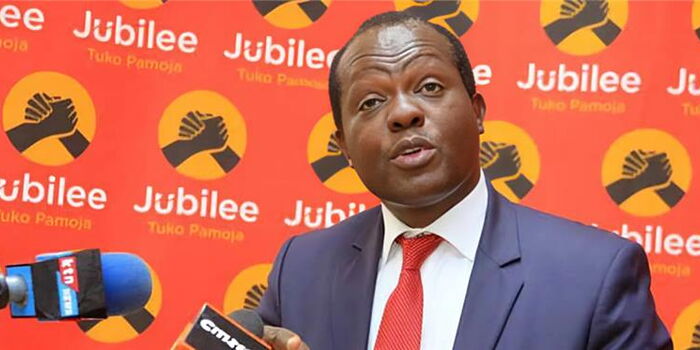Tuju Explains Why He Would Decline a Job Offer from President Ruto
Former Jubilee Party Secretary-General Raphael Tuju has made it clear that he would reject any government appointment from President William Ruto, saying he is content with his current lifestyle and responsibilities outside politics.
Speaking during an interview on TV47, Tuju explained that he is fully focused on his personal ventures, especially running his private businesses.
According to him, life away from politics has given him happiness, freedom, and peace of mind, allowing him to speak openly about national matters without being tied down by political interests.
“I am very happy where I am at the moment. I am enjoying a private life, I enjoy doing things that I like to do, and I can talk freely without worrying whether my words will hurt the government or the opposition,” Tuju said. “I don’t want a government job.
I don’t need it. I already have over one hundred employees, and to be honest, it would be very difficult to pay someone like me. My focus is on creating jobs, not chasing political positions or government deals.”
When asked whether he might consider returning to the Jubilee Party if the chance arose, Tuju downplayed the matter.
He said that for him, the future of Kenya is far more important than the politics of any single party. He stressed that political parties should not be the main focus, but rather the bigger picture of building a nation where elections are credible, transparent, and respected by all.
“I don’t think the issue is about parties anymore. Where the country is going, it is about the bigger national agenda. What we need is a political system that guarantees credible elections, not endless fights about party positions,” the former Jubilee boss stated.
Tuju also shared his views on the wave of youth-led protests that swept across Kenya in June and July this year. He criticised the demonstrations, claiming that they were not genuine but an illegitimate attempt to overthrow Ruto’s government.
He warned that such violent efforts could drag the country into chaos and instability similar to what has been witnessed in fragile African states.
“As long as someone has been elected, you do not remove them through illegitimate means. Look at countries like Somalia, where such practices took place—they have never recovered to this day,” Tuju cautioned.
He further pointed out that in several African countries where the military staged coups, leaders clung to power for decades, leaving citizens with no democratic rights. Drawing comparisons, he mentioned Sudan and its Gen Z uprisings, questioning what progress the country has achieved since those movements.
“In countries where the military took over, they remained in control for 40 or even 50 years. In Sudan, for instance, young people once rose up, but where is that country right now?” he asked.
Through the interview, Tuju painted a picture of a man comfortable in private life, committed to his personal projects, and critical of the direction of both party politics and street protests.
His message was clear—Kenya’s progress depends less on political parties and more on creating strong institutions, credible elections, and peaceful governance.
Join Government Official WhatsApp Channel To Stay Updated On time
https://whatsapp.com/channel/0029VaWT5gSGufImU8R0DO30


